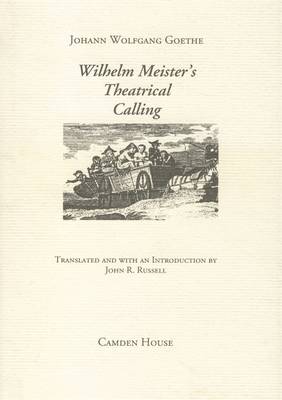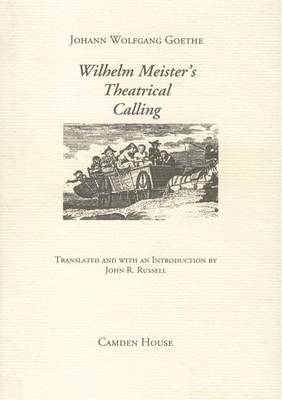
Vous voulez être sûr que vos cadeaux seront sous le sapin de Noël à temps? Nos magasins vous accueillent à bras ouverts. La plupart de nos magasins sont ouverts également les dimanches, vous pouvez vérifier les heures d'ouvertures sur notre site.
- Retrait gratuit dans votre magasin Club
- 7.000.000 titres dans notre catalogue
- Payer en toute sécurité
- Toujours un magasin près de chez vous
Vous voulez être sûr que vos cadeaux seront sous le sapin de Noël à temps? Nos magasins vous accueillent à bras ouverts. La plupart de nos magasins sont ouverts également les dimanches, vous pouvez vérifier les heures d'ouvertures sur notre site.
- Retrait gratuit dans votre magasin Club
- 7.000.0000 titres dans notre catalogue
- Payer en toute sécurité
- Toujours un magasin près de chez vous
Description
The original version of Goethe's Wilhelm Meister's Apprenticeship in its first modern English translation. In 1910 a Zurich pupil showed his teacher a family heirloom, an eighteenth century manuscript that the latter identified as the long lost first version of Goethe's Wilhelm Meister's Apprenticeship (1796), which the author in effect suppressed; his work on the novel was interrupted by his journey to Italy in the late 1780s, and after returning to Weimar he abandoned the Calling while preserving much of its material and poetry in the Apprenticeship, where the medium remains the theatre but the focus shifts to the maturation of Wilhelm. However, the Calling is more than just an early draft of the Apprenticeship; it contains material not found in thelater work and gives an entirely different view of the protagonist's family. At the centre of the Calling stands the theatre, and in following its youthful protagonist, the reader is systematically exposed to the many manifestations which characterise its development, from child's play through vaudeville and circus down to court theatre and ultimately modern theatre reflecting middle-class, urban life.
Spécifications
Parties prenantes
- Auteur(s) :
- Editeur:
Contenu
- Nombre de pages :
- 266
- Langue:
- Anglais
- Collection :
- Tome:
- n° 1
Caractéristiques
- EAN:
- 9781571130181
- Date de parution :
- 25-05-95
- Format:
- Livre relié
- Format numérique:
- Genaaid
- Dimensions :
- 386 mm x 579 mm







